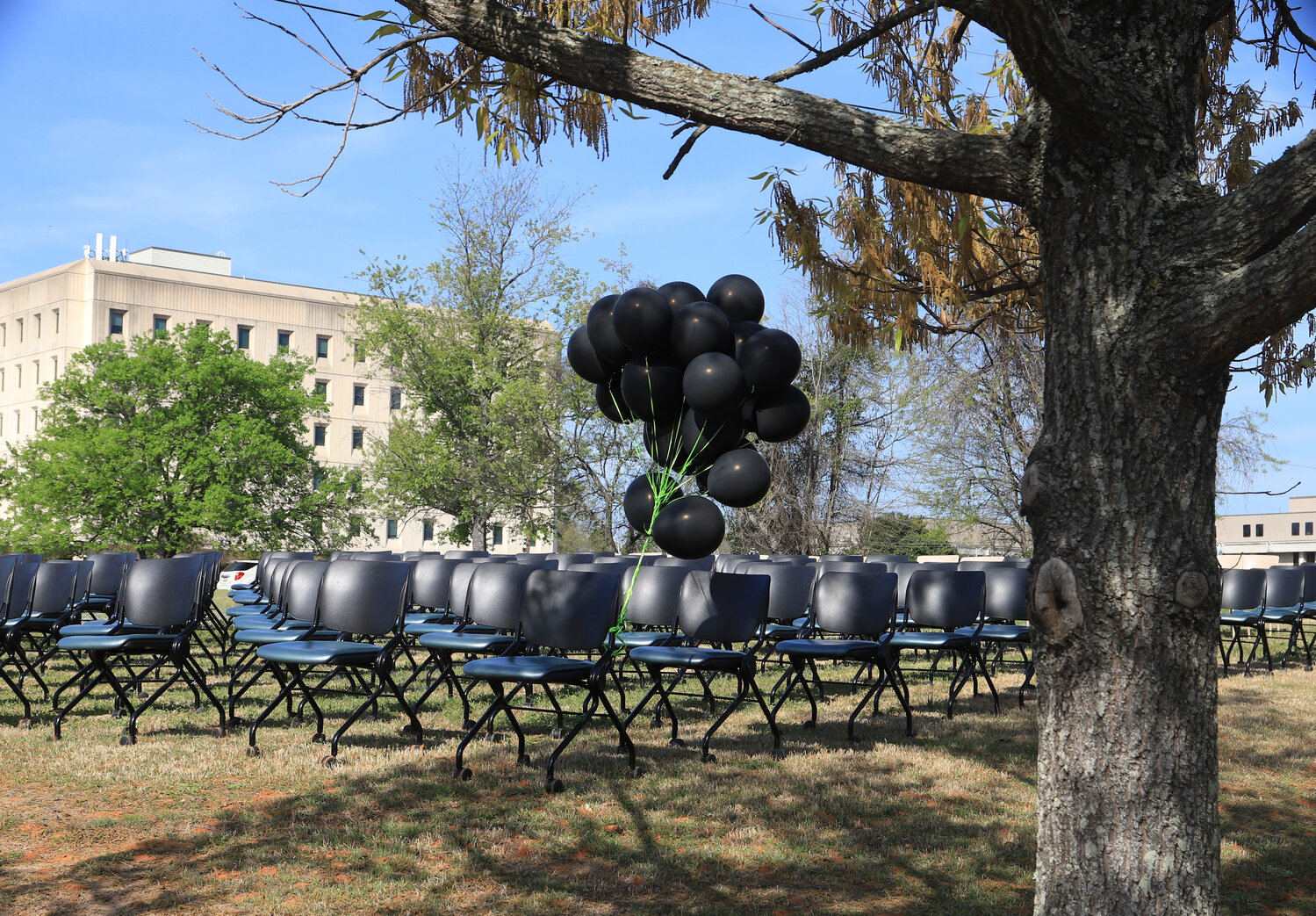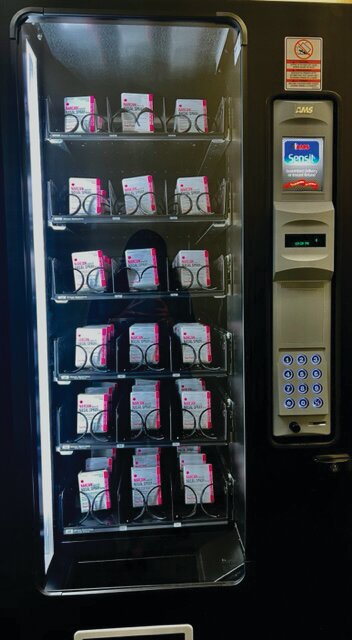Lexington County addiction services seek to keep up with rise in overdoses
On March 6, Lexington and Richland county law enforcement and others who work to battle issues of addiction and substance abuse gathered to remember 219 people they ultimately weren’t able to save.
This item is available in full to subscribers.
Subscribe to continue reading. Already a subscriber? Sign in
Get 50% of all subscriptions for a limited time. Subscribe today.
Please log in to continueNeed an account?
|
Lexington County addiction services seek to keep up with rise in overdoses


On March 6, Lexington and Richland county law enforcement and others who work to battle issues of addiction and substance abuse gathered to remember 219 people they ultimately weren’t able to save.
Represented by chairs outside the Columbia offices of LRADAC, formerly known as the Lexington/Richland Alcohol and Drug Abuse Council, these 219 people died from overdoses in 2022 in the two counties the organization serves.
Like many experts, representatives with LRADAC, one of 33 county alcohol and drug abuse authorities recognized by the state of South Carolina, and The Courage Center, the Lexington-based nonprofit that is the Midlands’ first recovery community organization supporting youth 14-26 struggling with substance abuse and those with family members dealing with such struggles, agree that the situation is increasingly troubling.
“2018, we had 60 overdoses. 2020, we had 100. 2021, we had 103. And 2022, we had 115,” said Dr. Pam Imm, a community psychologist who works with LRADAC and serves as board chair for The Courage Center, charting the trend of overdose deaths in Lexington County. “Nothing’s getting better here.”
The county could soon offer more help in this regard, as County Council voted last month to accept $17 million from a settlement reached by state Attorney General Alan Wilson with drug manufacturers Allergan and Teva, and pharmacies CVS, Walgreens and Walmart, part of $242 million the state is receiving from the national opioid settlement.
But, with overdose numbers on the rise and the spread of fentanyl sure to put further pressure on those statistics, local recovery groups are already pushing to implement new ways to help.
LRADAC recently partnered with the Lexington County Sheriff’s Department to install a Narcan vending machine at the county Detention Center, offering free doses of the opioid reversal drug to recently released inmates. Because, as a release explains, “many of these inmates are susceptible to overdoses upon release. “
“Statistics show that when former users have long periods between drug use, they are much more likely to suffer from overdose if they choose to use again,” the release states.
This adds to existing efforts to curtail overdoses among recently released inmates, including getting Narcan into the hands of bail bondsmen, Imm mentioned, so that they can serve as a similar means of getting the potentially life-saving drug into the hands of people likely to need it.
The Courage Center again got help earlier this year with its CORE program, a post-overdose outreach effort that similarly looks to get resources into the possession of statistically vulnerable people.
“Through the CORE program, [local EMS] provides a pouch with resource cards and a prepaid cell phone to overdose survivors following [Narcan] administration,” a release states. “Within 72 hours, a recovery coach calls the phone provided in the pouch to offer survivors assistance accessing services like treatment, recovery, housing, and employment.”
With the more than $97,000 the center was granted by the National Association of County and City Health Officials earlier this year, it is working to get these resources in place so they can be obtained via bail bondsmen or through the county Probation Department.
In addition to getting resources into the hands of people who can then provide them to people at high risk for overdoses, Courage Center Executive Director Randy Rush said the program, which is in its third year, has also provided the opportunity to educate people, such as EMS personnel, who frequently come into contact with those who have overdosed or are at risk of doing so.
“Really in some ways trying to shift and change a little bit the way that they looked at people with substance-use disorders and try to kind of decrease some of the stigma,” he said.
The Courage Center has also expanded its reach in response to the crisis it is seeing, crossing county lines into Richland to launch its Recovery in Action program there earlier this year, offering no-cost family support to loved ones with a teen or young adult who is not yet ready to begin the recovery process.
Rush said the center hopes to expand such efforts into parts of Lexington County it doesn’t regularly reach, and the organization also has its eye on Orangeburg County.
“We realize there's a gap in services, not just for adults, but in other parts of the area, and the Midlands, and we feel like we're called to fill that gap,” the executive director offered.
A controversial element included among LARDAC’s emergency outreach efforts is providing free fentanyl test kits, with which a person can test their drugs to see if they’re laced with the dangerous opioid, which the DEA notes is “100 times more potent than morphine and 50 times more potent than heroin as an analgesic.”
Critics of providing the test kits contend that they encourage drug use. But Jenniffer Weller-White, treatment director at LRADAC, sees it differently. Both her group and others like The Courage Center offer many options for therapy and other resources to help with recovery. But none of that matters if a person dies from an overdose after taking a fentanyl-laced drug.
“A lot of people are just in situations where maybe they can't access care or they can't access it appropriately or they have some lifestyle circumstances that keep them in active use,” she said, noting that research shows that providing the test kits helps with harm reduction when it comes to fentanyl.
“If people are going to continue using, then the next thing we can do is to try to at least make that process safe for them,” Weller-White said. “If we don't push abstinence first, a lot of times it can make recovery seem a little bit more tangible for people and then they end up getting treatment later on. Whatever the path to recovery looks like for someone is what we want to support.”
Keywords
lexington county overdose deaths, jail narcan vending machine, the courage center, lradacOther items that may interest you






Comments
No comments on this item Please log in to comment by clicking here